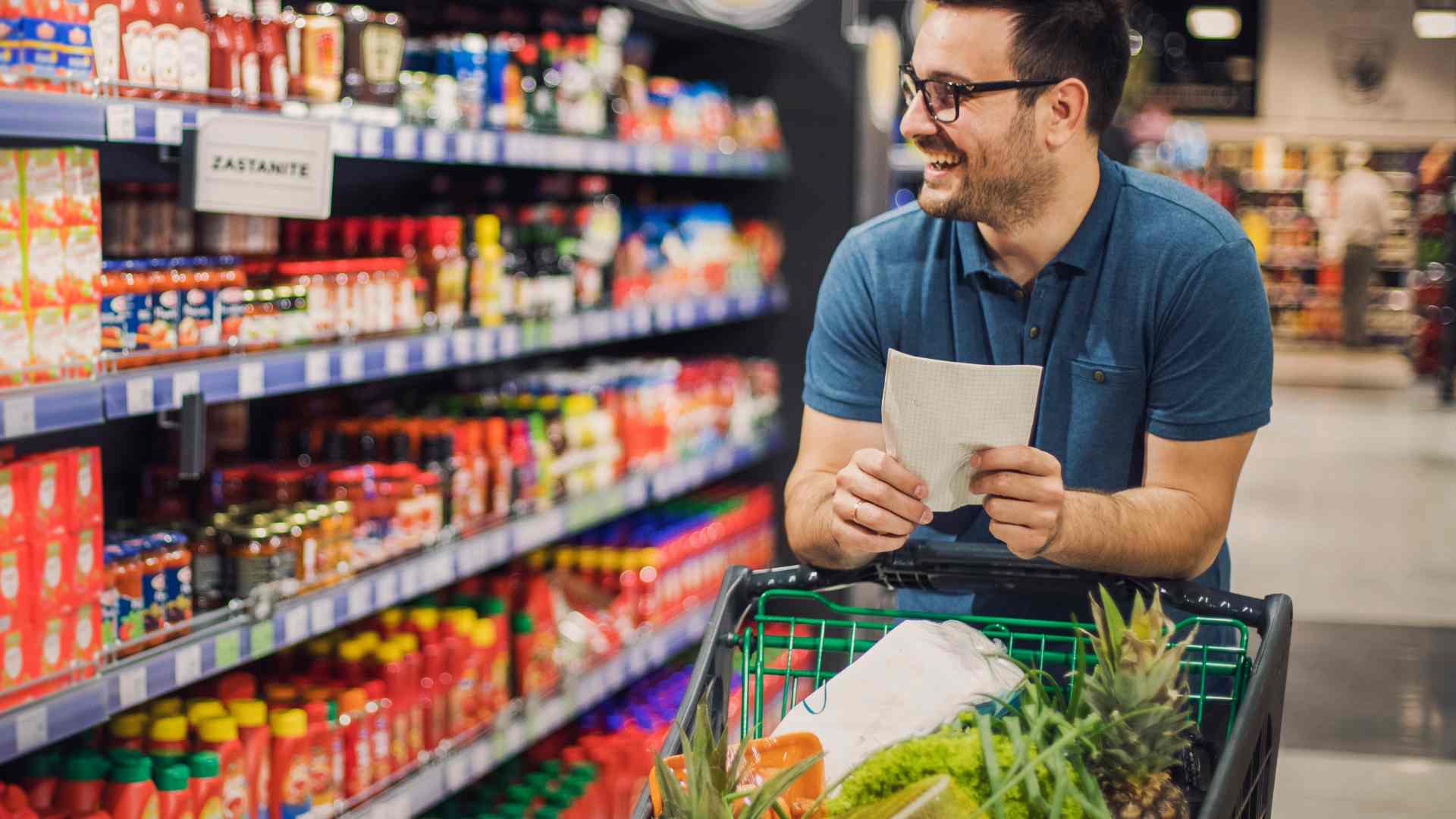Follow us on LinkedIn
Our PageIntroduction
With the current economic state of rising inflation and supply uncertainty, strategic and creative cost reduction is key for food and beverage companies for growing success.
Vehicle reimbursement programs (VRPs) including FAVR, TFCA and CPM are tax-free alternatives to traditional company fleet and allowance programs. They can save companies up to 30% of driver reimbursement spend to reinvest in their businesses and employees.
VRPs can be a game-changer for food and beverage companies seeking to save money and align with consumer expectations and sustainability concerns.
Company-Owned Fleets to VRPs
Challenges of maintaining company-owned fleets
Prior to the advent of emerging digital solutions, company-owned fleets were the norm for food and beverage companies. There are challenges however that are associated with company-owned fleets that are often overlooked and can be improved with tax-free vehicle reimbursement programs.
One of these challenges is high upfront costs for vehicle purchases. With a company fleet, a company is responsible for purchasing or leasing all vehicles driven by employees. This can be a huge expense, and might not also be necessary if the company doesn’t require specialized vehicles.
Another related expense with company-owned fleets is the ongoing costs for vehicle maintenance and insurance. With a company-owned car, the business is responsible for the maintenance of that vehicle, as well as insurance, even outside of business hours. The only thing is that they have to charge personal use chargebacks, whereby employees pay for their share of the company car usage. This is unpopular since they have to pay for a car they don’t necessarily even want to be driving, plus if you don’t charge these, then you could have greater tax liability as the employer.
Lastly, there are the unpredictable risks and costs associated with employees driving company cars home from work. If your employee gets into an accident in a company vehicle outside of work, the company could still be liable for the damages.
Finally, fleet vehicles continually depreciate, meaning that they will incur costs for the company again in the future when they eventually need to be replaced.
Benefits of transitioning to VRPs
Because of reduced administration work and increased savings, VRPs can be the better solution for driver services required by the food and beverage industry. Some of these benefits can be contrasted directly to the challenges of company fleets.
With Vehicle Reimbursement Programs, employees use their own cars for work related driving and are reimbursed in tax-free ways for these expenses.
The costs of providing a vehicle are initially borne by the employee, and their employer then furnishes the employee with a reimbursement.
VRPs can also often align with the needs of the food and beverage industry because employee vehicles don’t need to be specialized. If your workforce is in traditional company cars, then a VRP is ideal for you.
Case Studies of Successful Transitions
For the Vice President and Chief Financial Officer of one of the biggest concrete product manufacturers in the USA, ensuring that employees continued to feel valued while also transitioning to a VRP was essential.
The “company car” had always been thought of as part of an employee’s compensation, and the challenge was to eliminate administrative burden while ensuring that the company retained it’s “best place to work” culture.
The CFO reported that they chose Cardata because “their program just made sense”, and that after initial pushback from employees, “now people really like the program because it’s very easy to track your miles, drivers can get whatever car they want, and reimbursement is in their account on the 15th of the month, every month.”
Another company, a beverage distributor, saved $420k in one year by transitioning to a Fixed and Variable Rate Program (FAVR), from their customary allowance and fuel card system.
This company had been employing about 150 drivers, and giving $600 dollars for car allowance monthly to drivers as well as fuel compensation to offset taxation to the car allowance.
When the company reached out to Cardata, we introduced them to the FAVR program, which implements regionally-computed variable and fixed reimbursement. In 2022, they managed to save $420,000 in tax and gas card savings through the switch, by reducing taxes and gas card savings, and also scaling back administrative work.
Advantages of VRPs Over Taxable Car Allowance
We can see from the last story how Vehicle Reimbursement Programs can achieve cost savings over taxable car allowances. These are ensured because income is clearly separated from reimbursement. When reimbursement for vehicle expenses is granted like income, these funds become taxable, and that is where a vehicle reimbursement program can step in.
With a VRP like FAVR, Cardata calculates the regionally-specific fixed and variable costs that are incurred by your drivers, so that they can then be reimbursed directly and without taxation. Other options include the Cents-Per-Mile program (CPM) and the Tax-Free Car Allowance program (TFCA), which have fewer compliance measures than the FAVR while also providing tax-free reimbursements.
These programs are IRS-compliant and benefit both employers and employees. Employers pay less in taxes and additional fees, and employees are reimbursed in the most efficient way, without risk of having legitimate business expenses being taxed.
Many employees are taxed 30% of the reimbursed income for vehicle-related expenses. This means that most companies can expect at least 30% in savings if their drivers meet the compliance measures requested by the IRS.
These increased efficiencies and cost savings are why both employees and employers appreciate VRPs. Reimbursement partners like Cardata can determine your company’s compliance features to propose which program would be best suited for your company’s needs.
The saved income can be further reinvested back into your company and employees, to strengthen your business.
Adapting to Budgetary Constraints
With inflationary food prices, and labor and supply shortages, food and beverage companies can benefit from finding ways to cut costs so that funds can be used for other areas.
Cardata can partner with your organization to identify where VRPs can be effectively integrated to enable saved funds to be directed to critical areas of the business, including transferring a company fleet to privately owned vehicles, implementing a tax free reimbursement program, and introducing savings to your administration.
These saved funds can then be directed back to where your business needs it most.
One of the advantages of VRPs are their scalability and flexibility. No company is too big or small for VRP implementation and Cardata is able to hybridize our delivery to meet your needs.
Addressing Concerns and Implementation Tips
Companies are often very legitimately concerned that employees may have apprehension about transitioning from a company car to their personal vehicles for work. This could diminish the productivity of employees and alter company culture.
Cardata clients however point out that VRPs are often actually enjoyed by employees because they are seamlessly and accurately reimbursed for driving expenses, and don’t have to experience needless taxation on reimbursement.
Furthermore, they have the flexibility to drive whatever car they want.
A crucial element of VRPs is the fair reimbursement rate, which is achieved via our data-driven software. Our software accurately targets gas rates and IRS rates, and tracks mileage.
With this technology, employees can feel a sense of transparency and fairness with the reimbursement system, and can also be assured that they will be seamlessly paid for expenses. Guidelines for vehicle standards and maintenance can also achieve a sense of fairness.
VRPs can be implemented fairly through collaborating with experts through your partner, and then communicating the benefits and financial advantages to employees.
Cardata is committed to reviewing and evaluating the success of VRPs by collecting feedback from employees and management. We make necessary adjustments for continuous improvement. This way, VRPs can be maximally beneficial for everyone.
Conclusion
Cost reduction is essential for the food and beverage industry in our current economic climate, and will likely remain essential for some time into the future.
VRPs can introduce savings for companies of all sizes through reduced taxes and spending, simplified administration and transition toward employee-owned vehicles.
Companies might consider taking action to implement VRPs to save money which can be reinvested in business and employees, for a more successful future.
Share on:



